Our Traditional Visit To Knott's Berry Farm
We go to the Knott's Crafts Fair every wintertime to see what the latest craze is. This year was no different! Off we go to the arts and crafts area.

Did You Know? -
In 1920, Walter Knott (1889–1981) and his family sold berries, berry preserves and pies from a roadside stand beside State Route 39, near the small town of Buena Park.
In 1932, on a visit to Rudolph Boysen's farm in nearby Anaheim, Walter Knott was introduced to a new hybrid berry of blackberry, red raspberry and loganberry cross-bred by Boysen, who gave Walter his last six wilted berry-hybrid plants. Walter planted and cultivated them, then the family sold the berries at their roadside stand.[2] When people asked what kind they were, he called them "Boysenberrys".

We parked very close to the front entrance
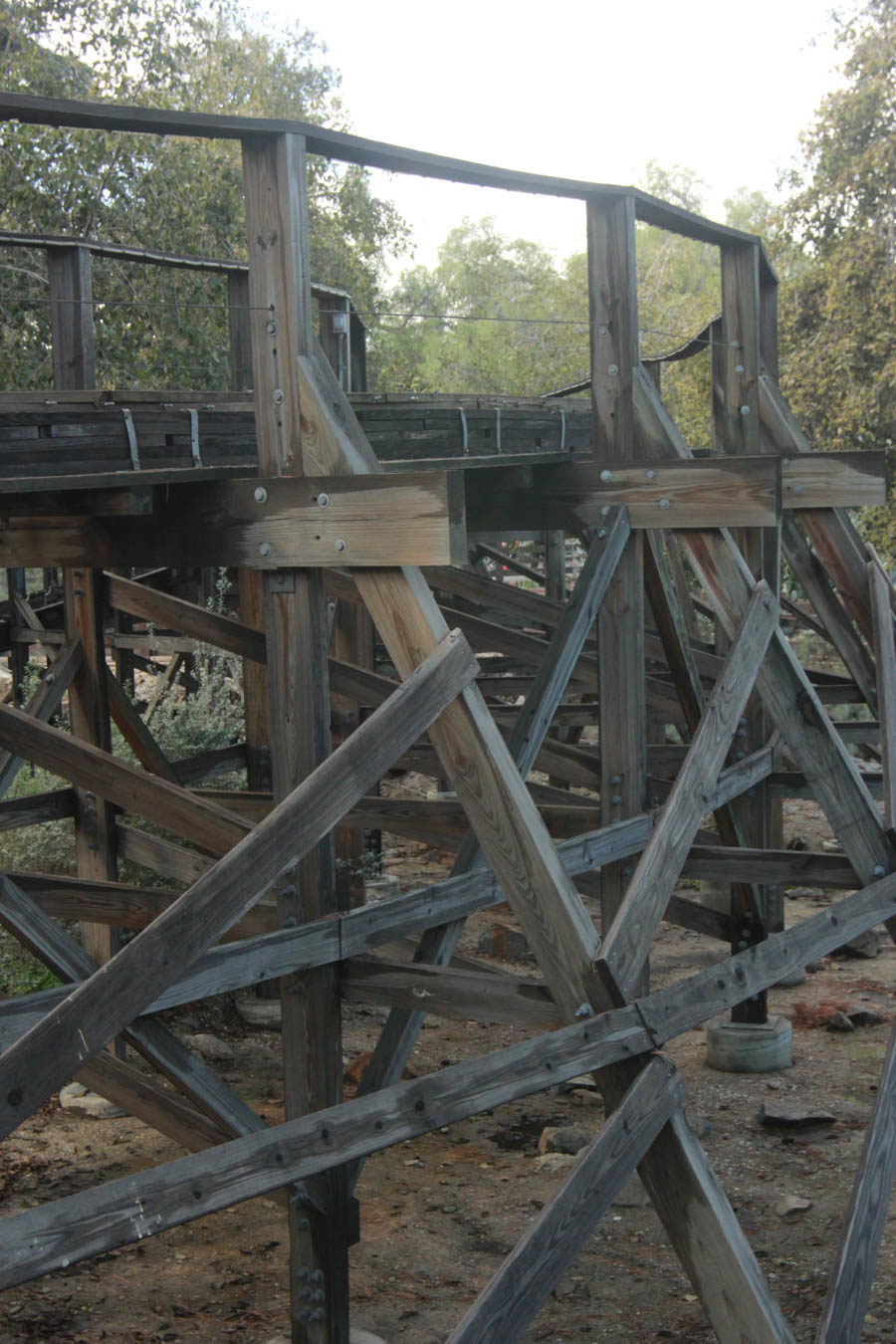
The wooden Coaster was nearby
Did You Know? - Once a staple in virtually every amusement park in America, wooden roller coasters began a slow decline in popularity for a number of reasons. Steel roller coasters, while having larger up-front costs, cost much less in ongoing maintenance fees throughout the years of operation. Wooden roller coasters, on the other hand, require large amounts of devoted funds annually to keep the ride in operating condition through regular re-tracking, track lubrication, and support maintenance.
Wooden coasters are also becoming less marketable in today's media-driven advertising world. Superlative advertising in which the "biggest", "tallest", or "fastest" ride is what brings in crowds often cannot apply to new wooden roller coasters, especially since a large majority of record-holding rides are steel. Amusement parks are always looking to add attractions that can be presented in commercials and ads as incredibly tall, fast, or extreme, which eliminates many wooden roller coasters.

There were poinsettias everywhere
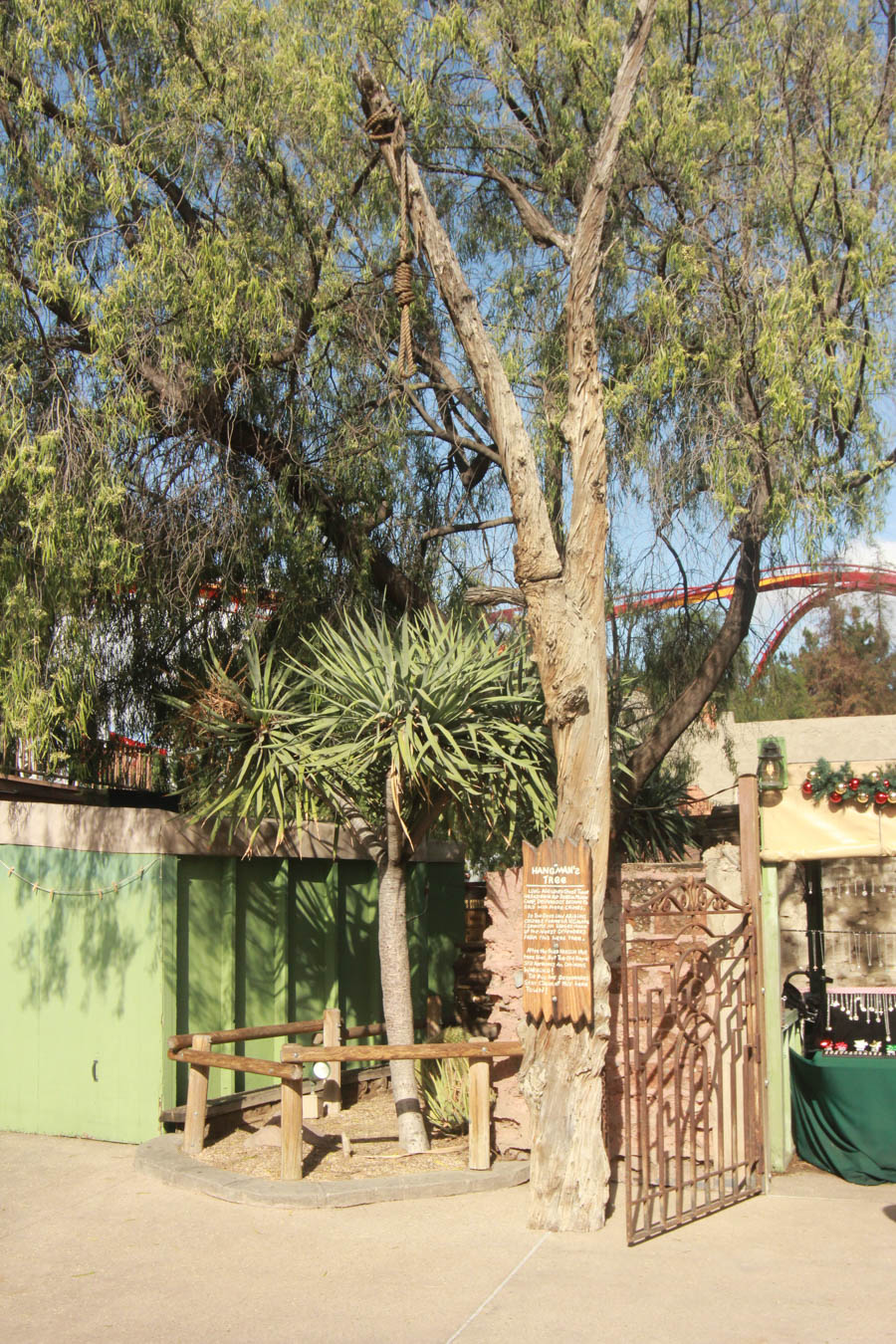
Look carefully for the noose
Did You Know? - A noose is a loop at the end of a rope in which the knot slides to make the loop collapsible. Knots used for making nooses include the running bowline, the tarbuck knot, and the slip knot.

Did You Know? - When the Knotts started farming here in 1920, this blacksmith shop was standing on a farm about a mile away and was so old then that moss was growing on the roof. It was moved here intact when Ghost Town was started in 1940.

The Smithy was busy today
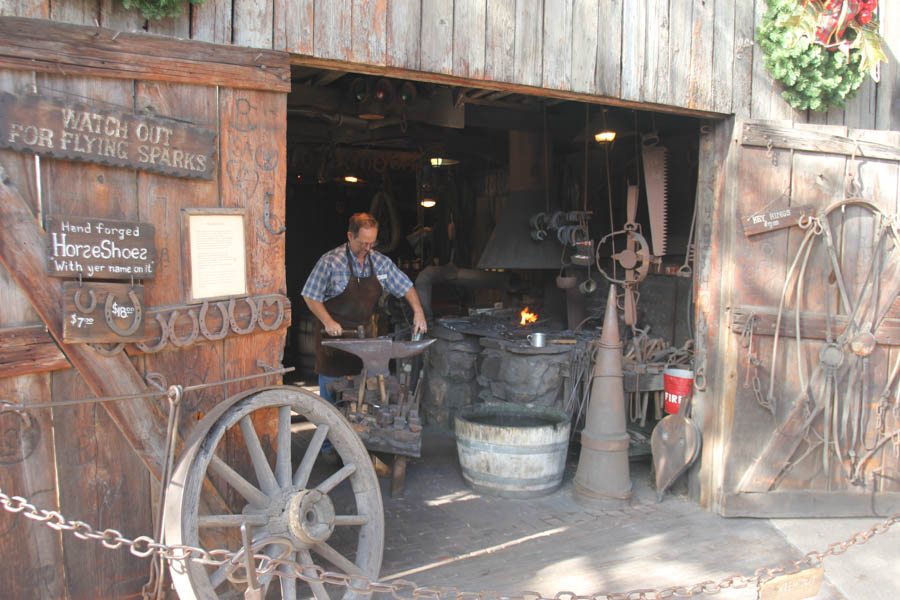
Bet that anvil weighted in at 150 pounds
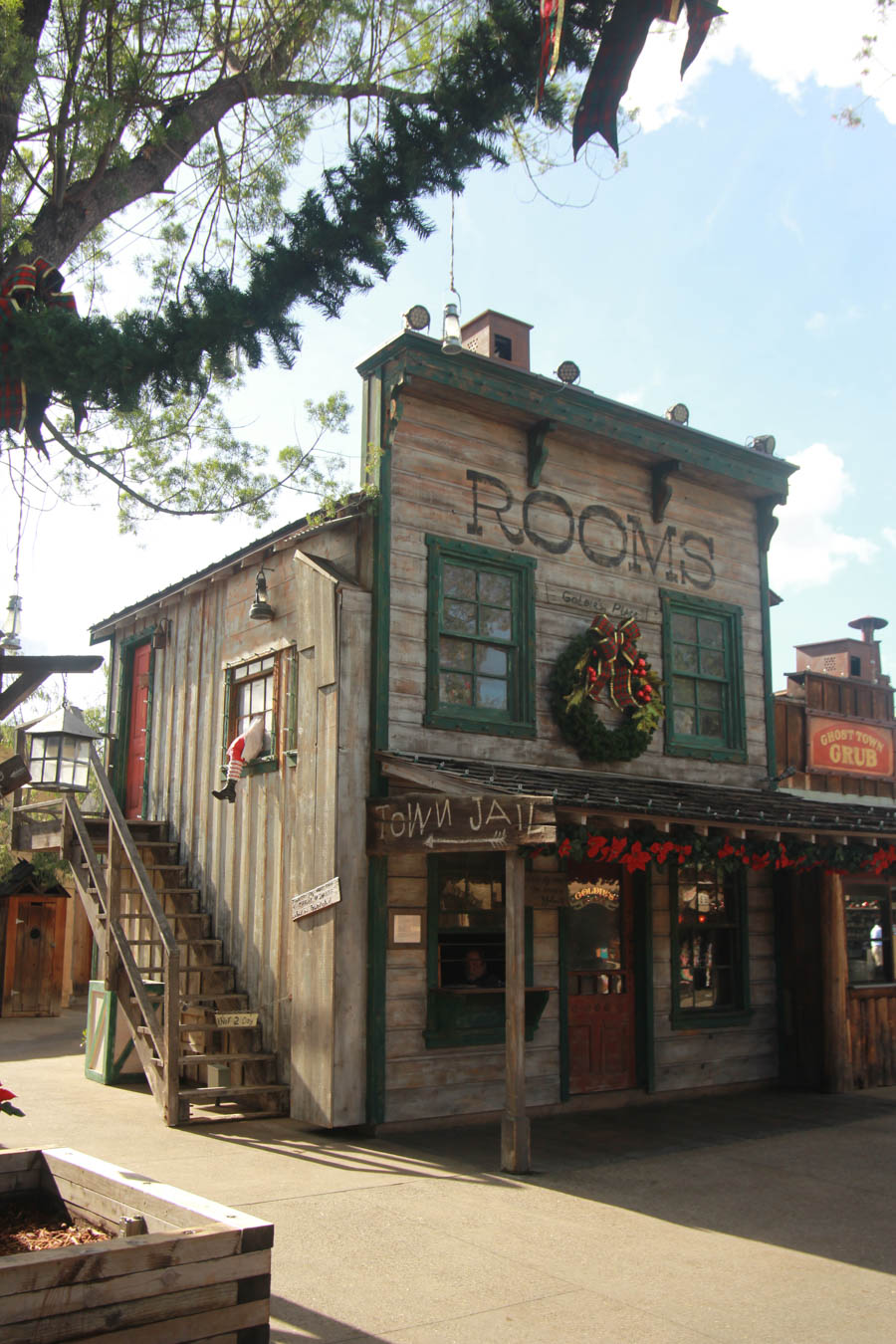
She is attempting to escape

It would have been moving nicely today but it is fixed

Playing the fiddle

Rather large display of the mission San Juan Capistrano
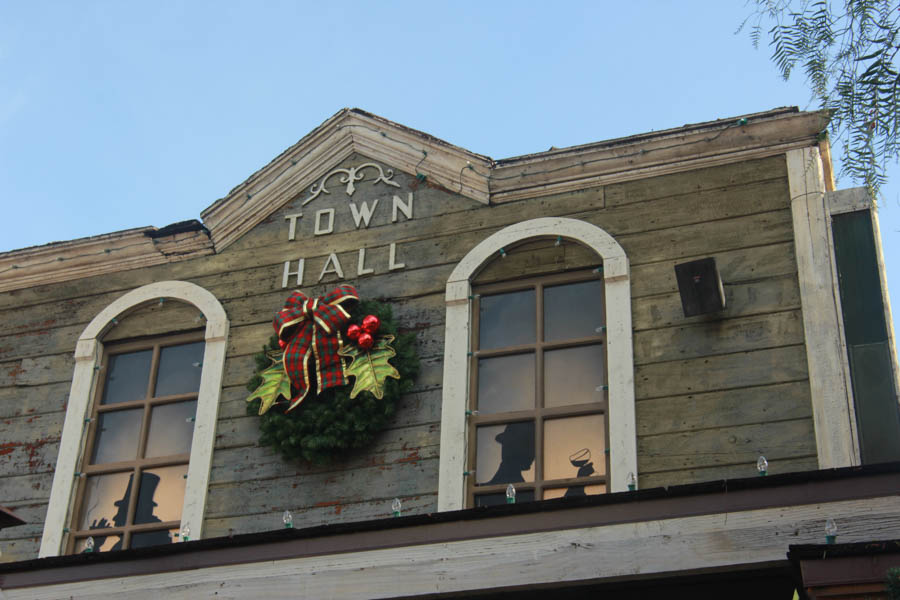
Having a drink in the town hall
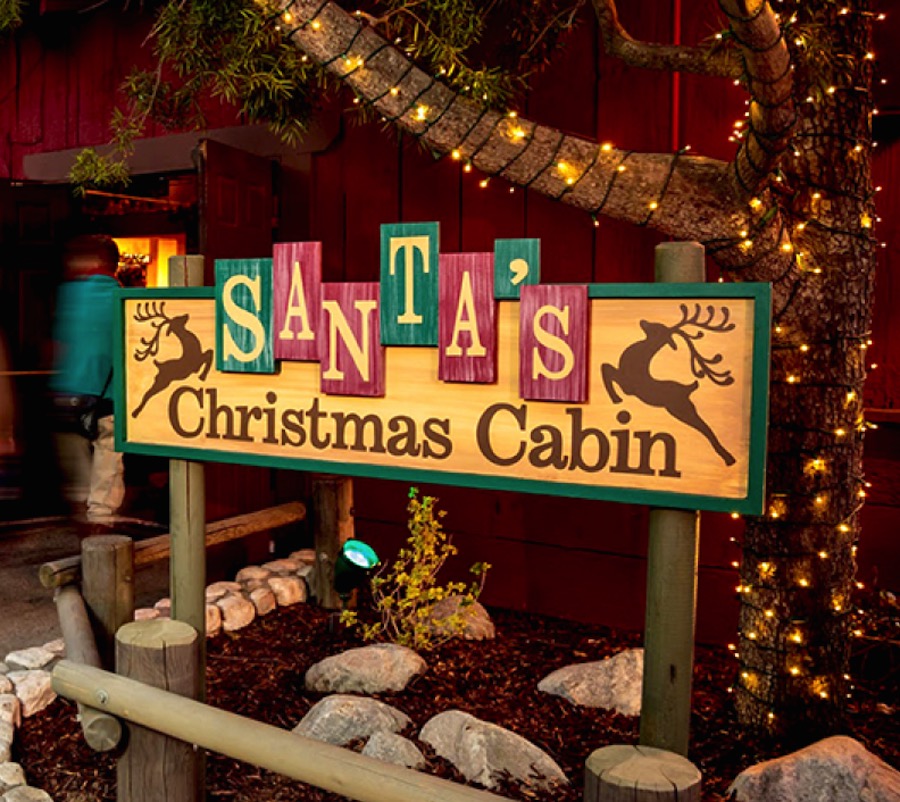
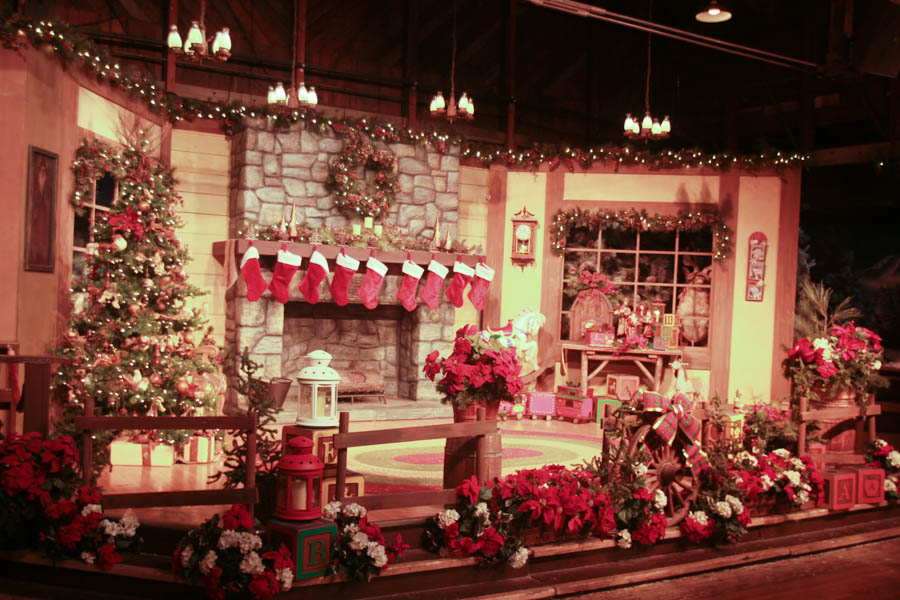
The Christmas Barn was huge

Santa had a great setup
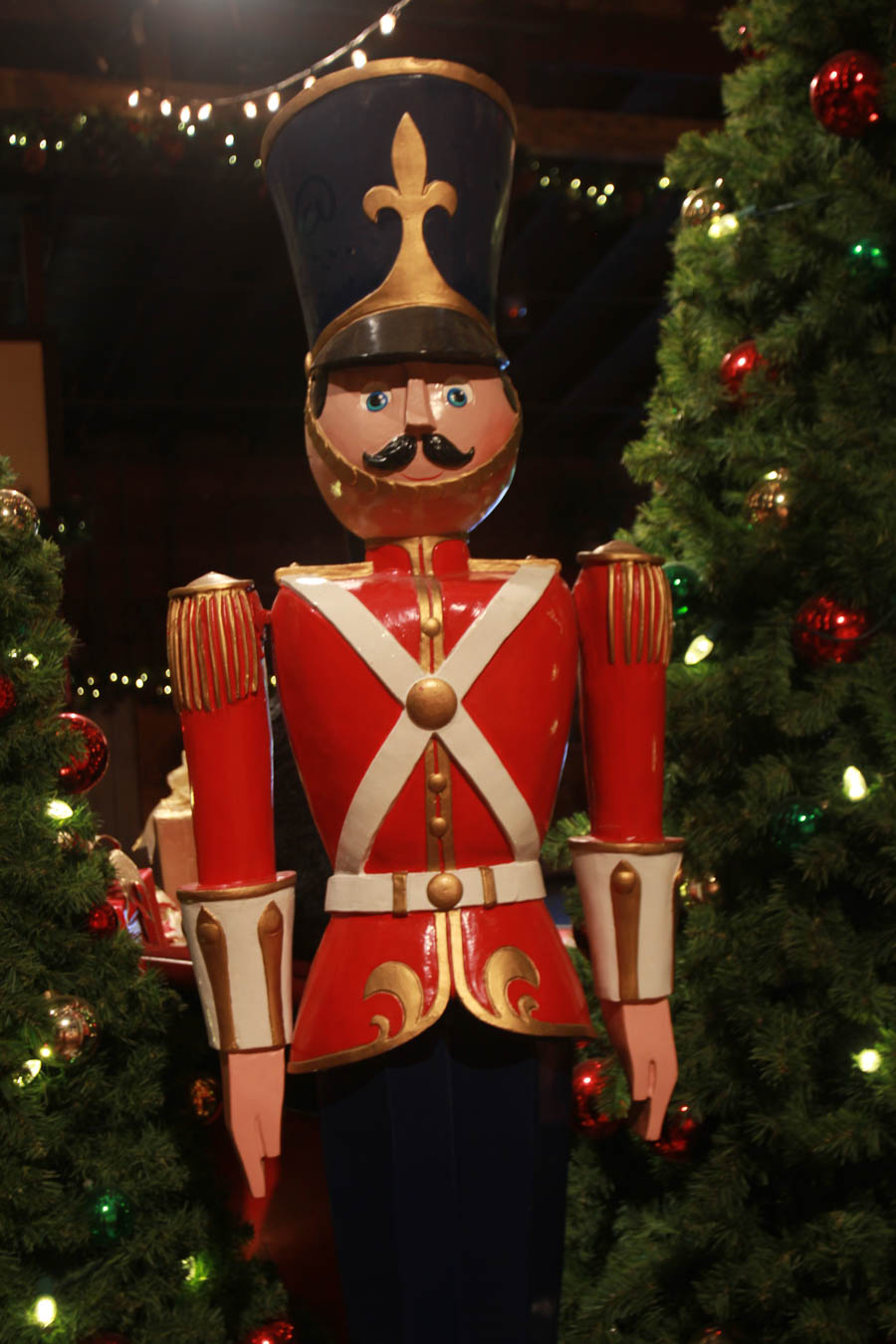
On guard
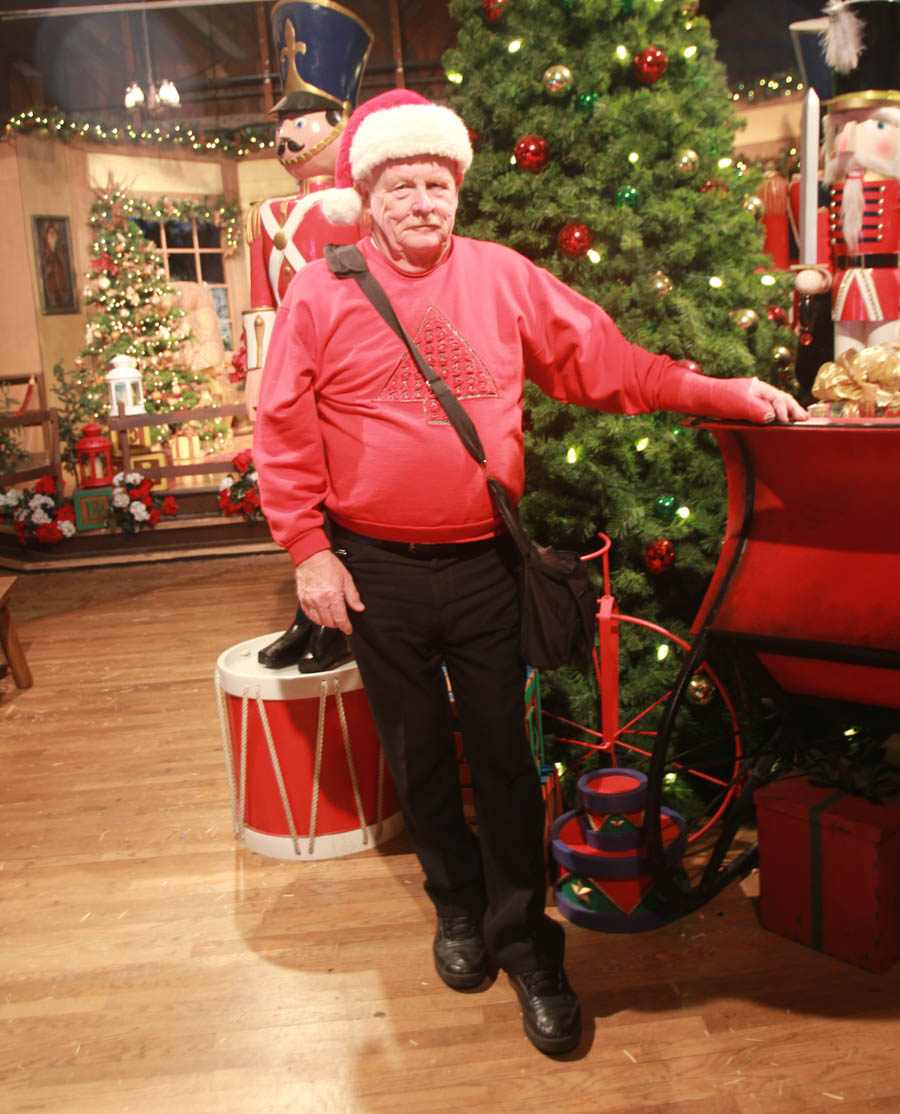
Two more pounds and Paul could be Santa
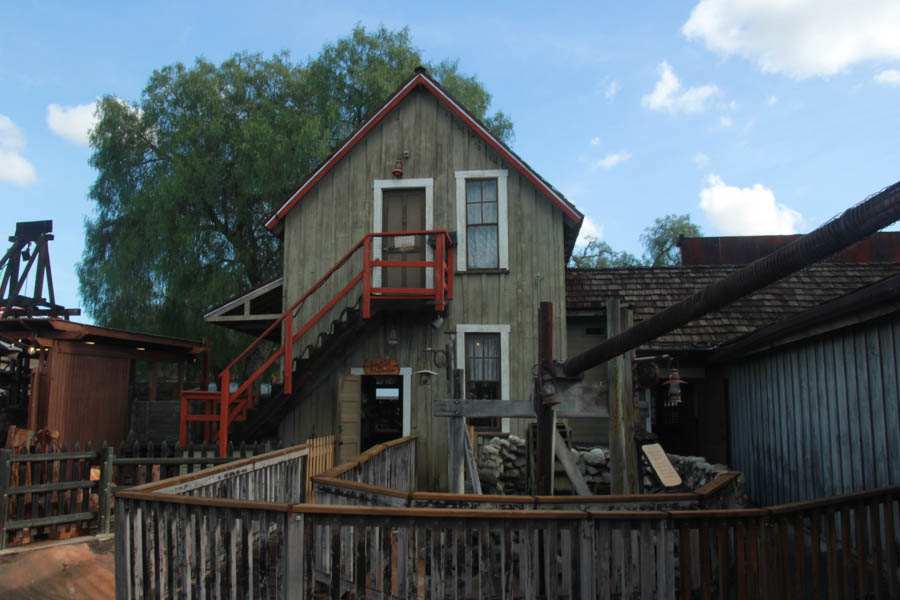
We walked everywhere

That water looks cold

This is an original schoolhouse originally built in 1989

Can't resist poinsettias
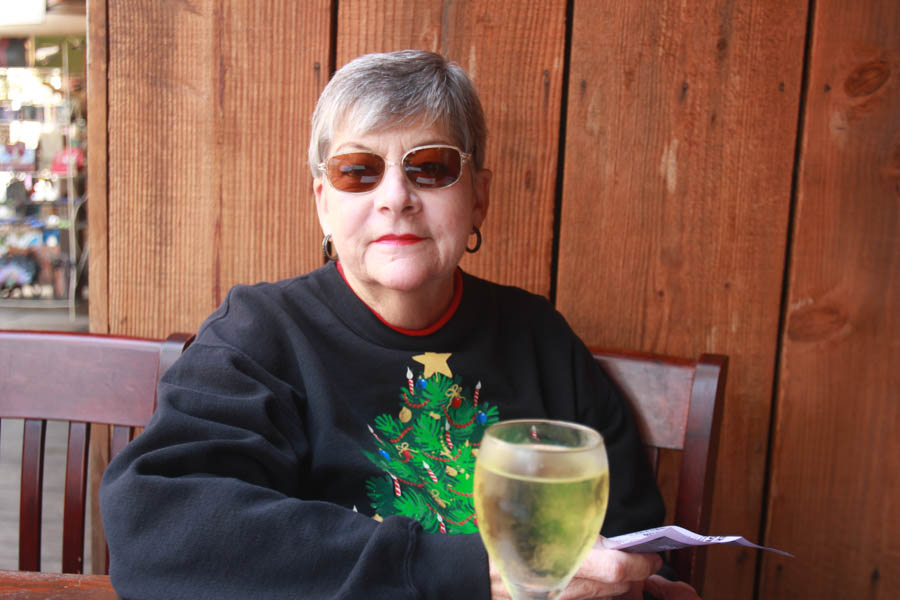
Sue taking care of Paul... Time for a glass of wine
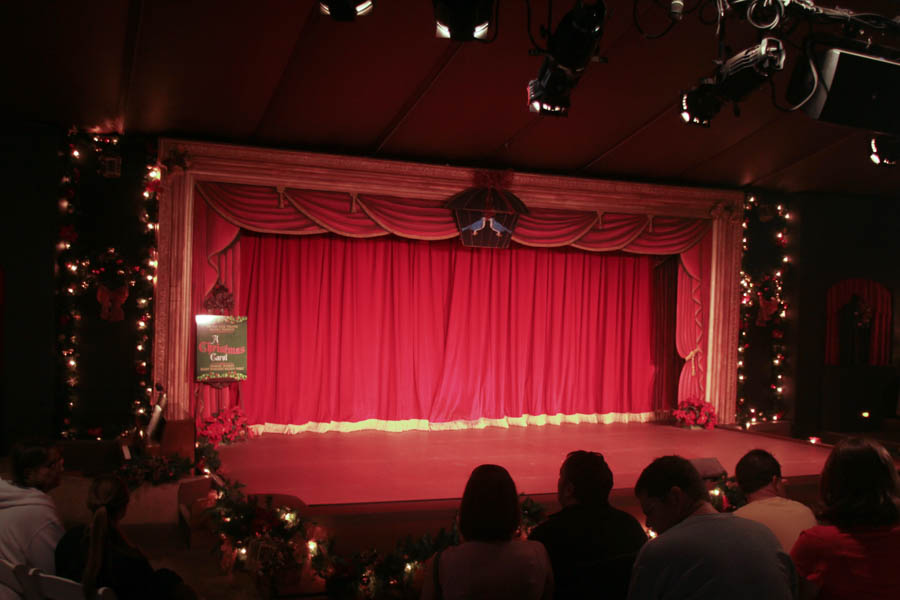
The Birdcage Theater
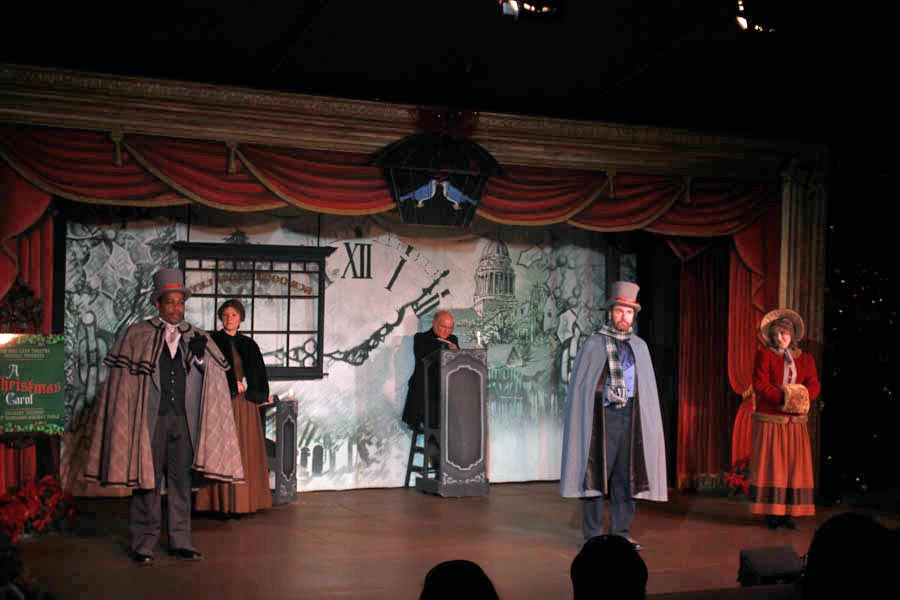
Scrooge was really mean today
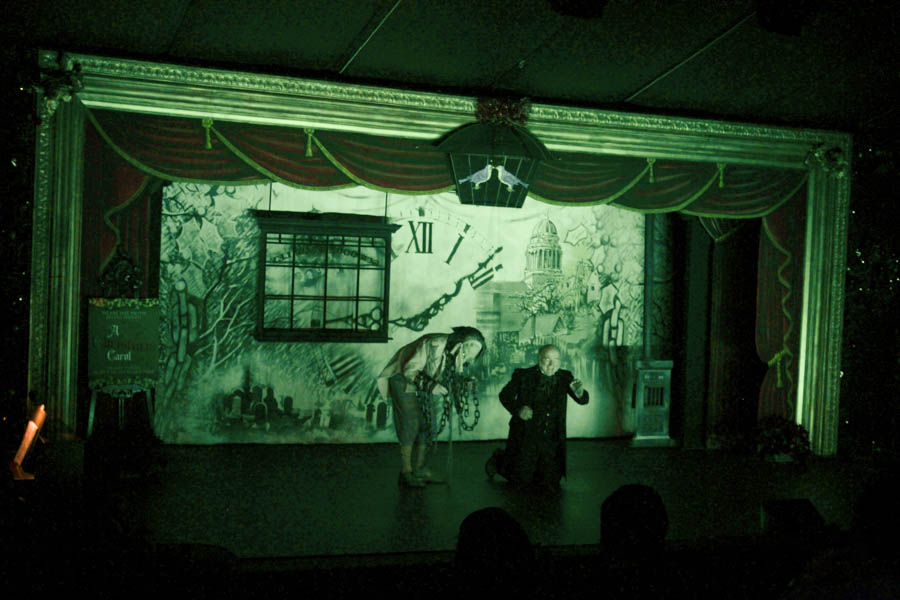
The first ghost made everything green... Spooky
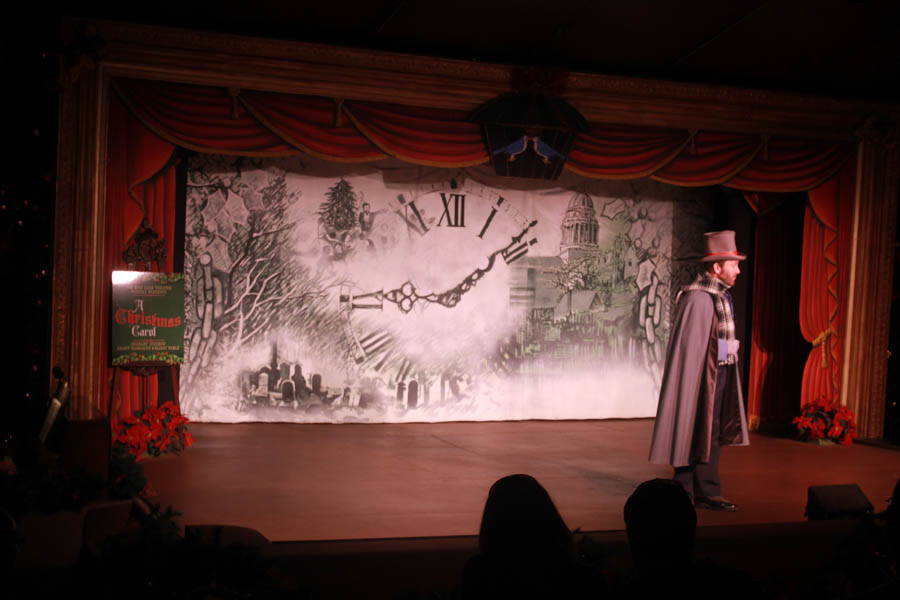
All ends well after the short 30 minute play

Time for a bow
Did You Know? - Bowing (also called stooping) is the act of lowering the torso and head as a social gesture in direction to another person or symbol.
It is most prominent in Asian cultures but it is also typical of nobility and aristocracy in many countries and distinctively in Europe. It is also used in religious contexts, as a form of worship or veneration.
Sometimes the gesture may be limited to lowering the head such as in Indonesia, and in many cultures several degrees of the lowness of the bow are distinguished and regarded as appropriate for different circumstances.
It is especially prominent in China, Korea, Taiwan, Japan, and Vietnam where it may be executed standing or kneeling. Some bows are performed equally by two or more people while others are unequal - the person bowed to either does not bow in return or performs a less low bow in response.
A nod of the head may be regarded as the minimal form of bow; forms of kneeling, genuflection, or prostration which involves the hands or whole body touching the ground, are the next levels of gesture.
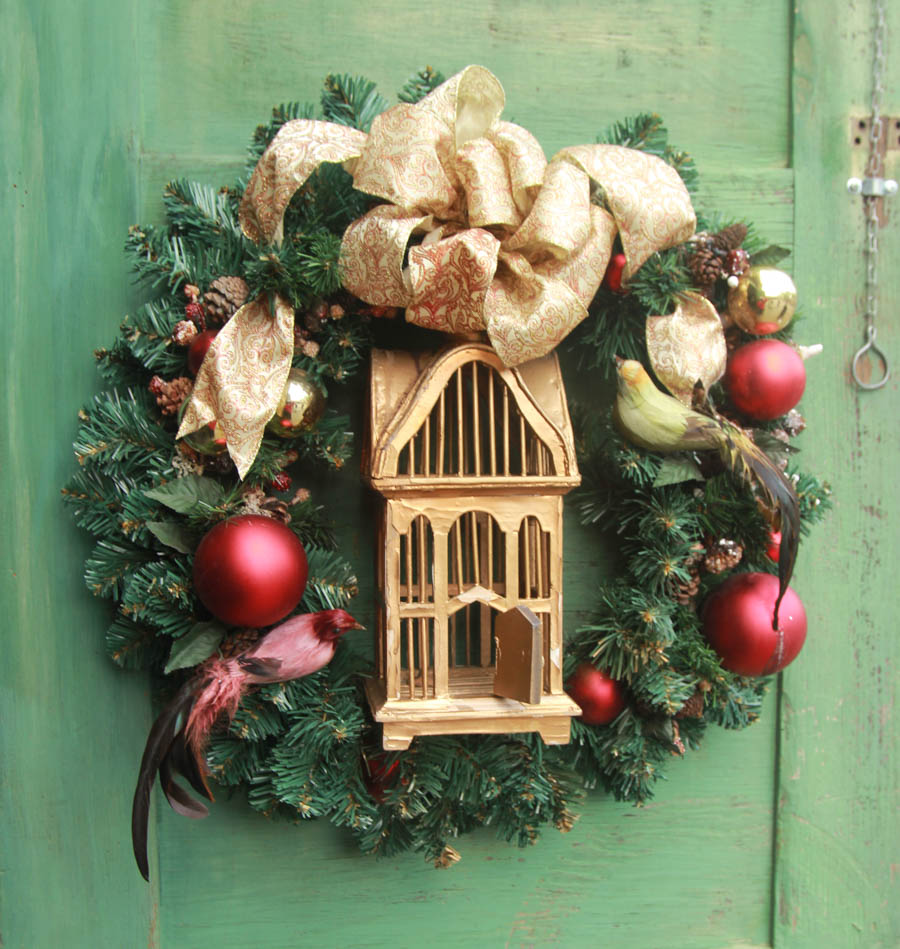
Great birdcage
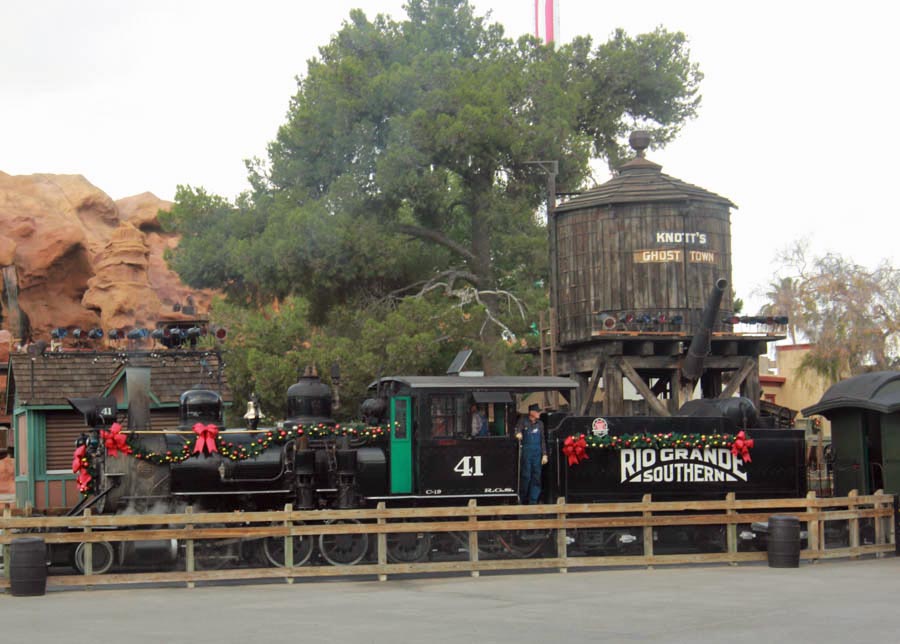
Always on time
Did You Know? - Walter Knott began acquiring the authentic vintage equipment in 1951 and work began to grade and lay 3 ft (914 mm) narrow gauge track for a grand circle rail route for recently acquired rolling stock with service starting that November.
The railroad's opening ceremony commenced on January 12, 1952.
Unlike many other theme park railroads, the locomotives and most of the other equipment of the Ghost Town & Calico – Knott's Scenic Route have been restored to original paint schemes and appearance on Colorado's Rio Grande Southern Railroad and Denver and Rio Grande Western Railroad. Also unlike most theme park railroads used as transportation, it travels in a circle and riders disembark at the same place they alight – Calico Depot.
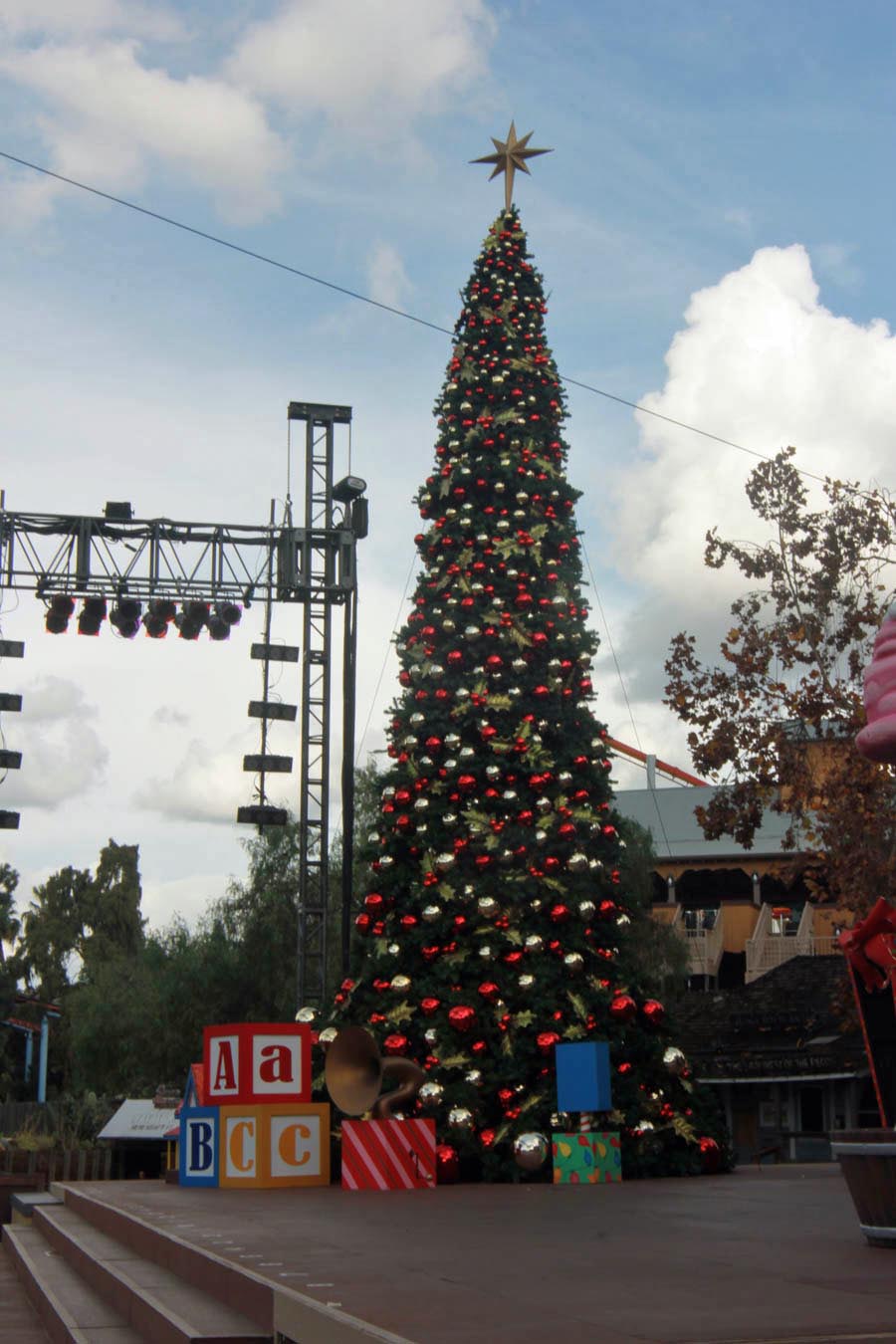
The tree was beautiful in the sunlight
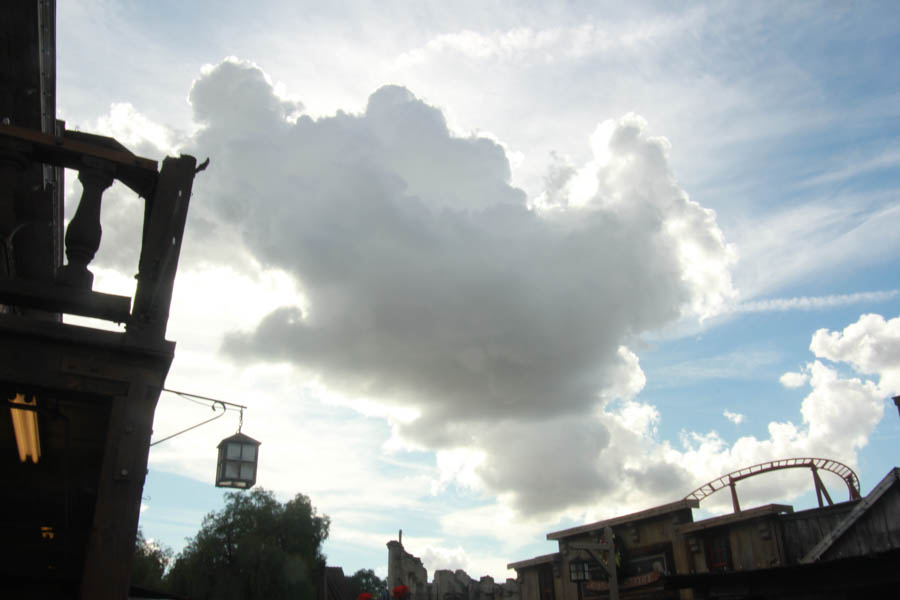
It was an interesting day.... Huge clouds

The original chain saw massacre... Chain saw artwork being created

The old gift store is gone... Replaced by a museum
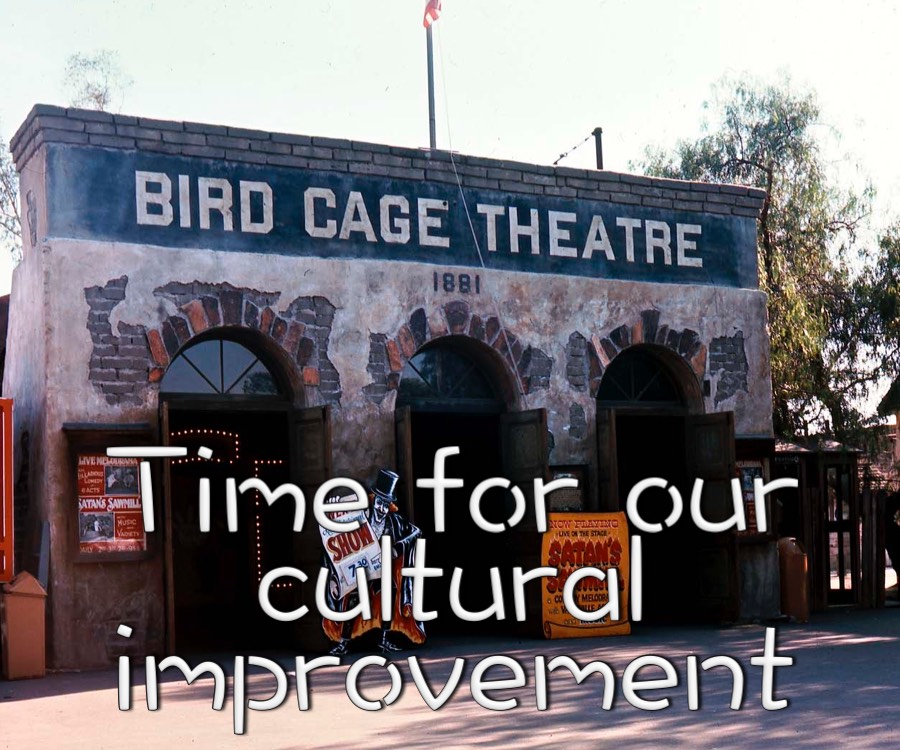
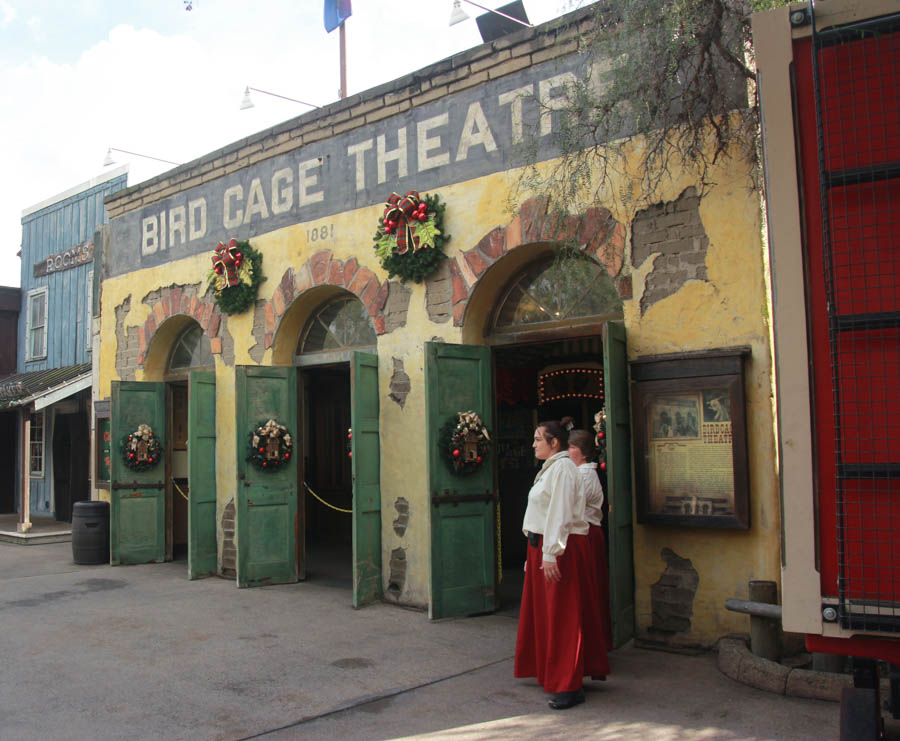
Back to the theater to see...
"Gift of the Magi"
Did You Know? - "The Gift of the Magi" is a short story, written by O. Henry (a pen name for William Sydney Porter), about a young married couple and how they deal with the challenge of buying secret Christmas gifts for each other with very little money.
As a sentimental story with a moral lesson about gift-giving, it has been a popular one for adaptation, especially for presentation at Christmas time.
The plot and its "twist ending" are well-known, and the ending is generally considered an example of comic irony. It was allegedly written at Pete's Tavern on Irving Place in New York City.
The story was initially published in The New York Sunday World under the title "Gifts of the Magi" on December 10, 1905.

Tah Dah....

They came down for a visit
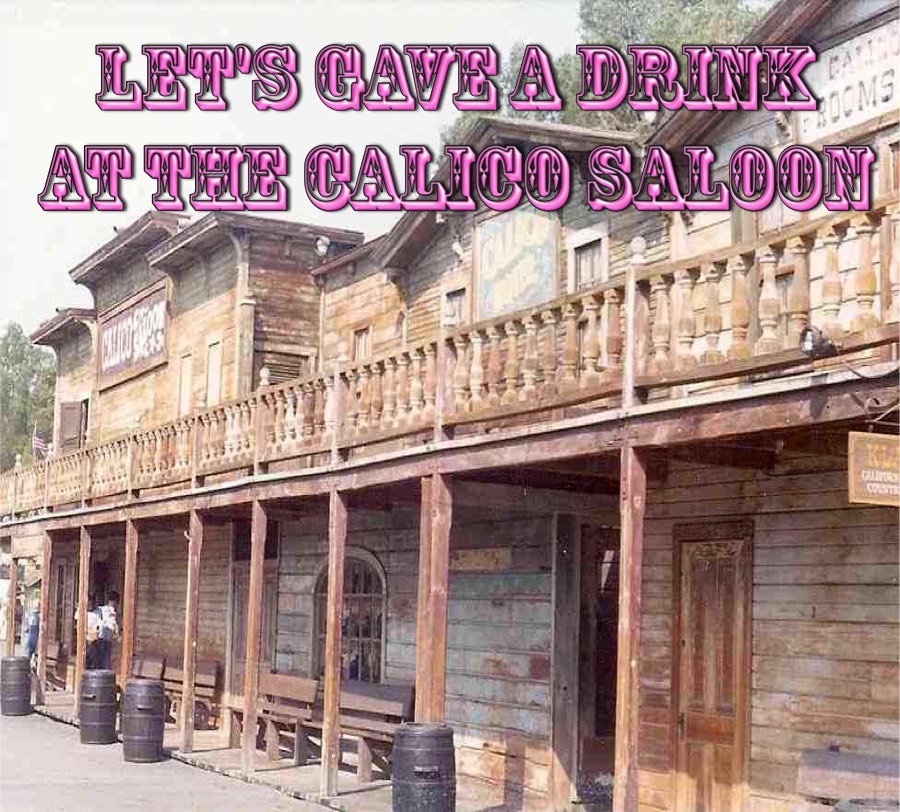
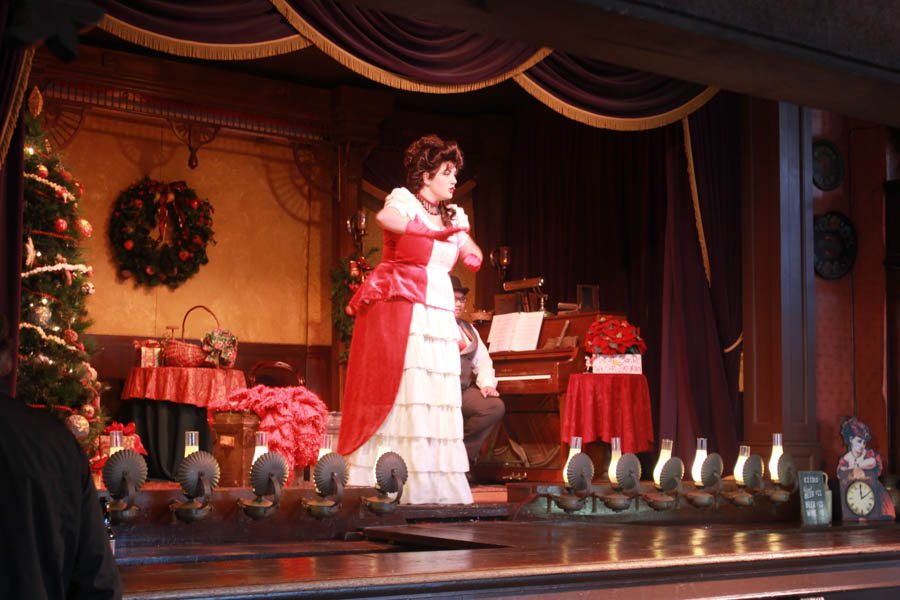
Cameo Kate and Dakota Dan invite you to their
musical turn of the century holiday celebration.
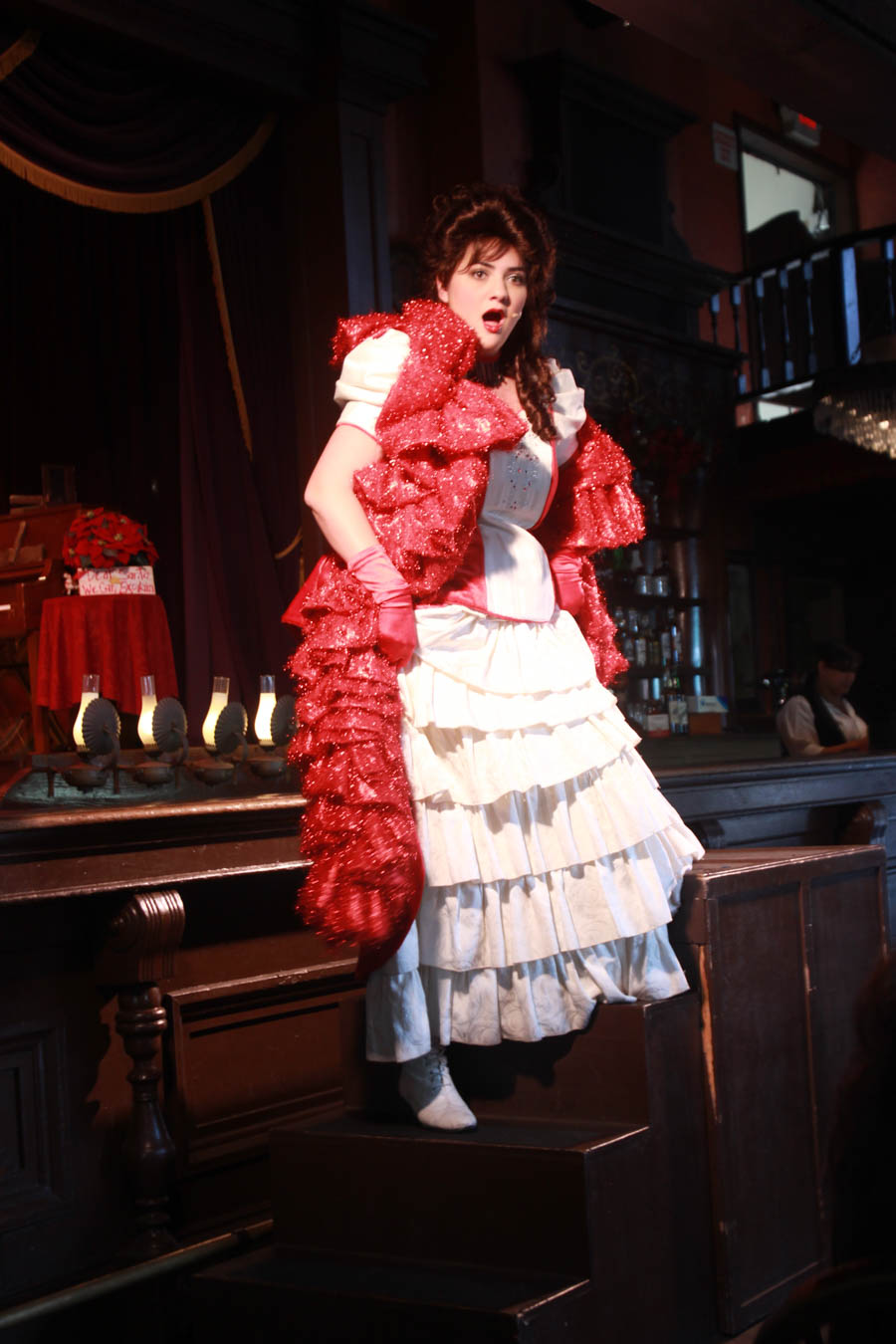
Look out. here she comes
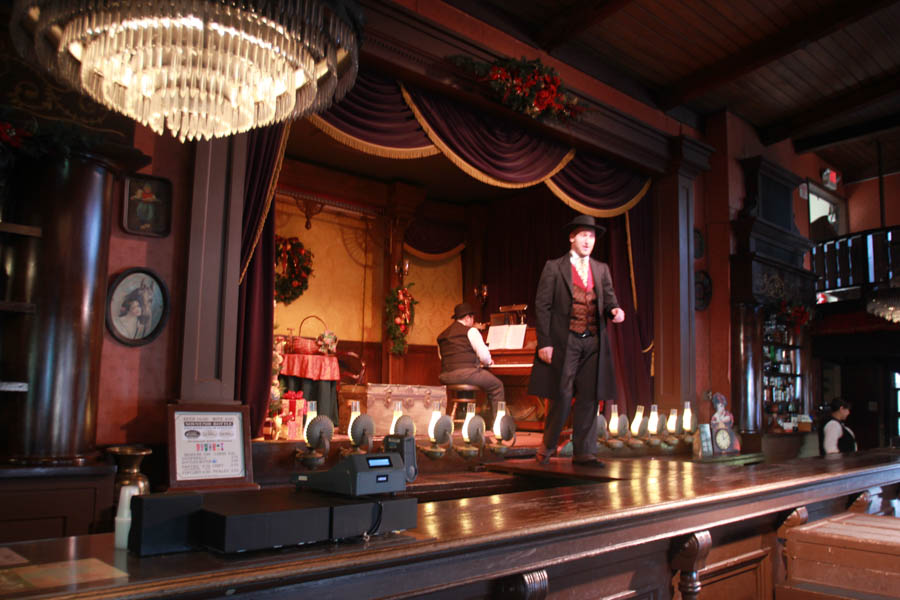
Her boyfriend is looking for the guy in the audience
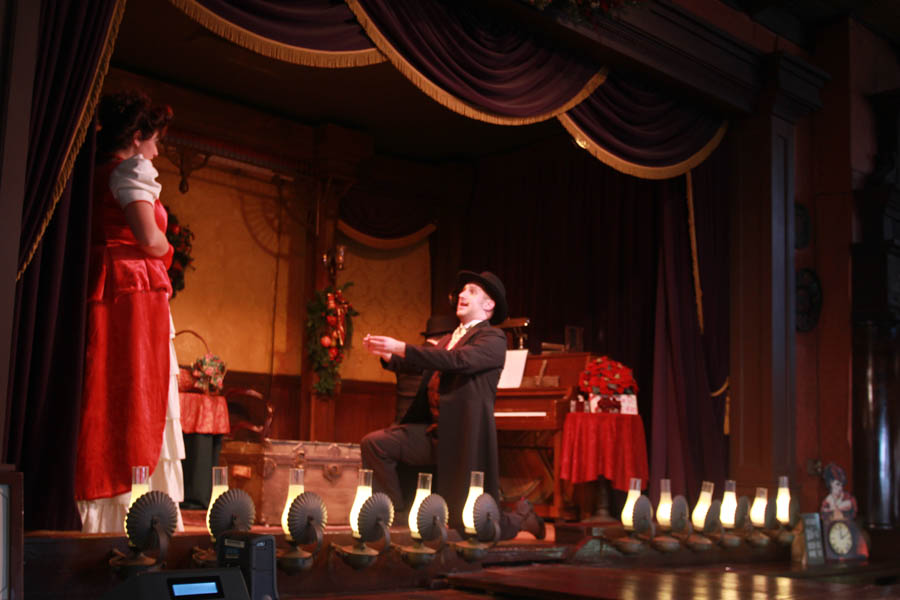
Marry me!
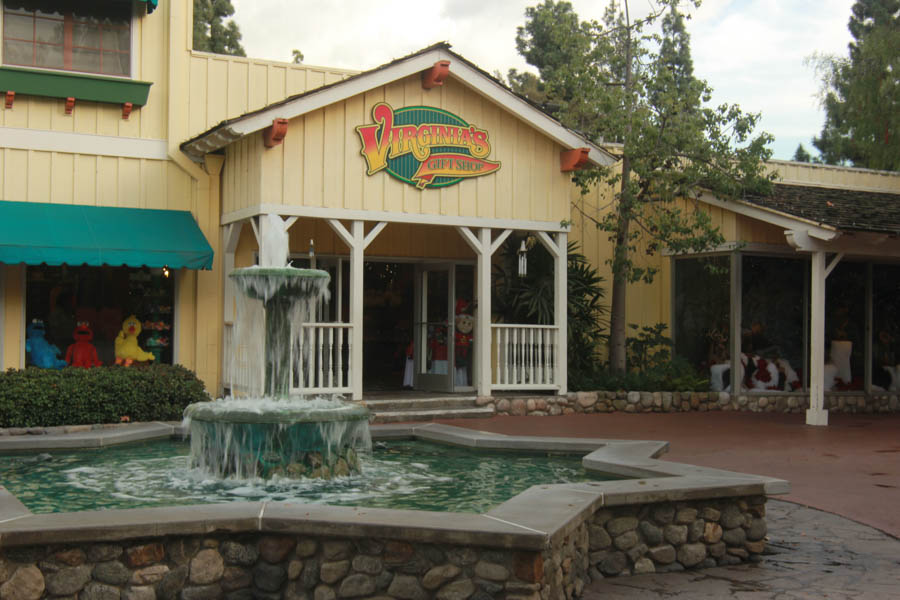
We stopped at Virginia's to look around

